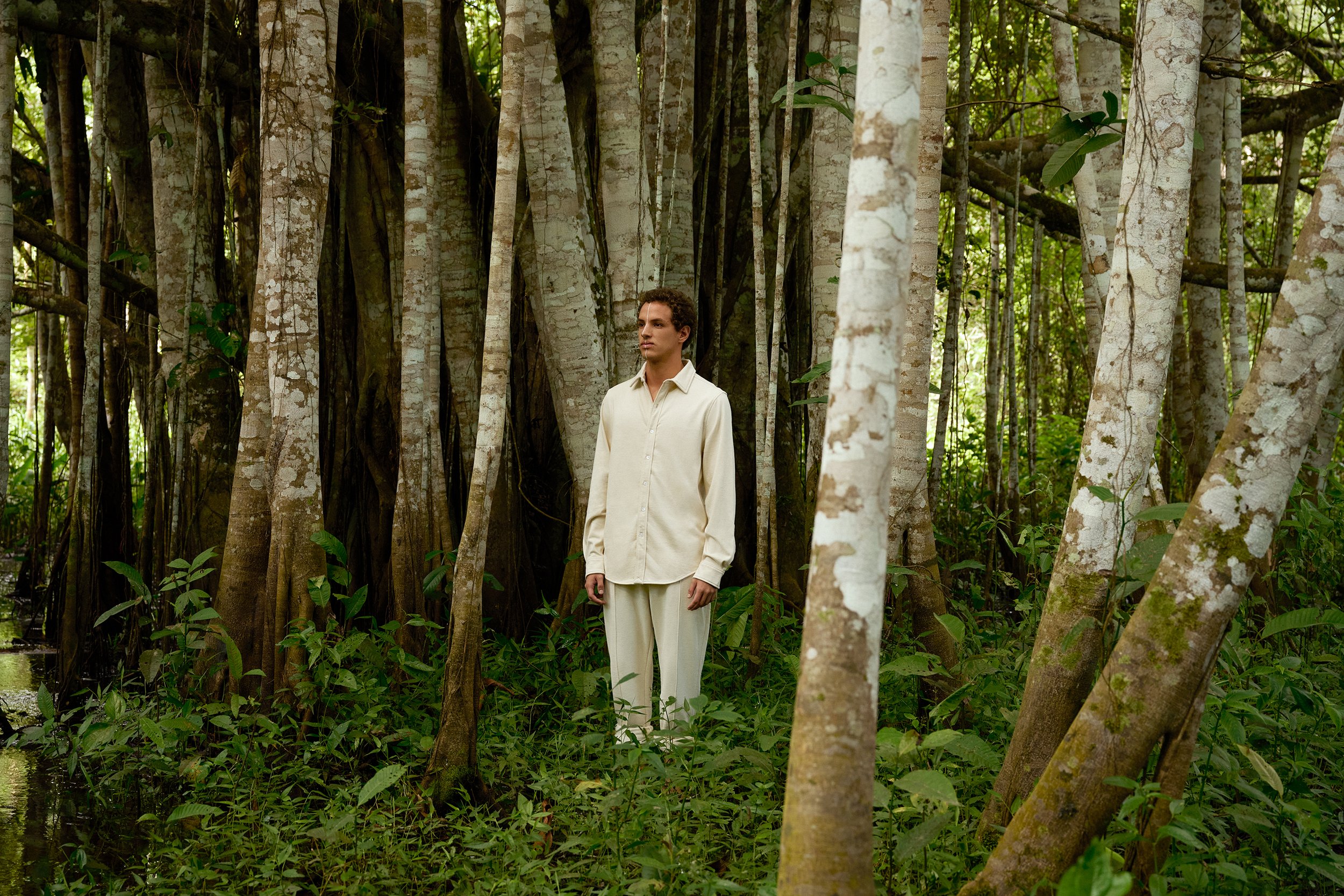
The sourcing is conducted under an agroforestry model, ensuring the sustainable harvesting of trees from the natural forests of the Peruvian Amazon.
Aguaje
Aguaje, from the Mauritia flexuosa palm, is a versatile fiber harvested sustainably from the Amazon rainforest. Known for its robustness and flexibility, Aguaje fiber is used in a variety of applications, including weaving bags, hats, and other handicrafts. The sustainable extraction of Aguaje supports both the environment and local communities, promoting biodiversity and economic stability. Its unique properties and eco-friendly nature make Aguaje fiber an ideal material for creating durable and environmentally conscious products.
Chambira
Chambira, derived from the Amazonian palm tree Astrocaryum chambira, is a highly durable and flexible natural fiber. It is sustainably harvested by indigenous Amazonian communities, ensuring minimal environmental impact and promoting local economic development. Known for its exceptional strength and resistance to wear, Chambira is widely used in the production of traditional crafts. Its natural resilience makes it ideal for eco-friendly fashion and home deco products that demand longevity and robustness.
Bombonaje
Bombonaje, sourced from the Bombona plant (Chelyocarpus ulei) found in the Amazon rainforest, is prized for its sturdy and pliable fibers. This fiber is harvested in a sustainable manner, ensuring the conservation of the palm species and the surrounding ecosystem. Bombonaje fibers are notable for their strength and elasticity, making them suitable for weaving yarns used in textiles and home deco. The sustainable harvesting practices employed help maintain the ecological balance and provide economic benefits to local Amazonian communities.
Kapok
Kapok fiber comes from the Ceiba tree (Ceiba pentandra), also known as the Kapok tree. The fiber is extracted from the seed pods of the tree and is known for its lightweight, softness, and hypoallergenic properties. Our sustainable harvesting techniques ensure the protection of these majestic trees while supporting the livelihoods of Amazonian communities. The fiber's natural properties make it an excellent choice for eco-friendly and allergen-free products.









